Sunset Song: Enduring appeal of a Scottish classic
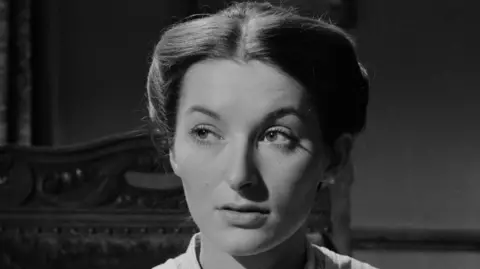 BBC
BBCIt was the programme which brought to TV audiences one of the great 20th Century novels and revolutionised how drama was made in Scotland.
Now, 54 years later, BBC Scotland's ground-breaking 1971 production of Sunset Song is being shown again in a re-mastered version to mark the 90th anniversary of author Lewis Grassic Gibbon's death.
The serial, acclaimed as one of the finest dramas made by the BBC, will be followed by sequels Cloud Howe and Grey Granite, which were made in the early 1980s.
It is a fresh chance to see why both the novel and the dramas endure.
Sunset Song was written in 1932, the first of three books telling the story of Chris Guthrie, a young woman who lives and works on her family farm in the Mearns, the farming areas south of Aberdeen.
Beginning just before World War One, the novel and its sequels follow Chris from the countryside of her childhood to a big city, touching on class, war, religion and female emancipation.
Lewis Grassic Gibbon was the pen name of James Leslie Mitchell, who had been raised in the Mearns. He was a journalist in Aberdeen, Glasgow and London and a passionate socialist.
He published A Scots Quair, as the trilogy became known, between 1932-1934, the final volume appearing just a year before his untimely death aged 33.
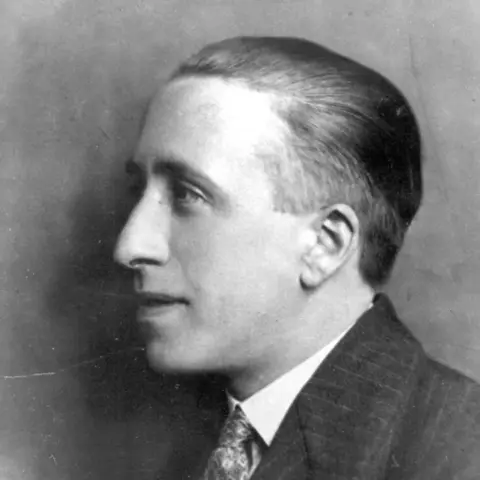
The journalist and author James Naughtie was brought up in nearby Banffshire and knows well the area in which Sunset Song is set.
He remembers the effect reading it had on him as a teenager in the late 1960s.
"I remember being very gripped by it emotionally. I think that it's a book that young people can become involved in and respond to very viscerally. It became something that I realised was a book I would never forget," he says.
In March 1971, the six-episode-long television adaptation hit the screens. It was the first colour drama made by BBC Scotland and was greeted with huge acclaim.
Adapted by Bill Craig and directed by Moira Armstrong, it featured some of Scotland's greatest acting talent, including Andrew Keir, Roddy McMillan and Paul Young.
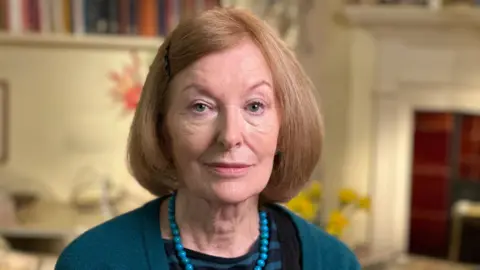
Chris was played by Vivien Heilbron, just 26 at the time. More than 50 years later, she is still happy to talk about the role.
"I'm very, very proud of all three programmes. I'm proud to be associated with it and it is by far the most interesting character I've every played on television," she says.
"I've done some nice things and had very good parts, but that was something kind of iconic, I think."
James Naughtie has voiced the trails for the programme's latest broadcast and believes the series more than lived up to the book.
"The TV adaptation was, I think, quite an enlightened thing because the book wasn't well enough known. I mean, it was known fairly well but it hadn't become a kind of touchstone for modern Scottish writing in the way that it has since," he says.
Sunset Song has been remastered. The original film was digitised, 50 years of dirt and dust removed and the picture regraded to resemble as much as possible its original look.
Vivien says: "I'm absolutely thrilled. A lot of people really loved it and seem to want to see it again and I am hoping that a lot of people will watch it this time who have never seen it before.
"Sunset Song is always the favourite one but I think that Cloud Howe and Grey Granite are also terrific novels and Bill Craig made such a beautiful job of all three adaptations.
"I'm sure if Lewis Grassic Gibbon could see them he would have approved."
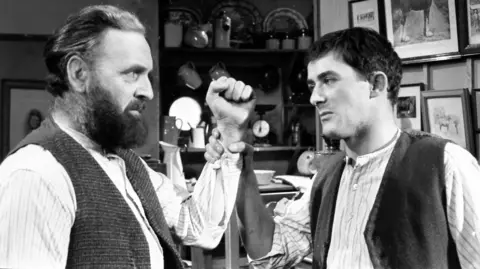
The TV drama was credited with reigniting interest in Grassic Gibbon, and Sunset Song was put on the Higher English syllabus. In 2016, it was voted Scotland's favourite book in a BBC poll.
In an introduction to the novel published in 2020, the then First Minister Nicola Sturgeon wrote of her love for the book, which she said is her favourite novel.
"Sunset Song is one of the first books that had me utterly captivated by the lyricism of language and the power of place. I discovered the novel's ability to educate as well as entertain," she wrote.
"While I could fantasise about being George from the Famous Five in a life wildly different to my own, Chris Guthrie spoke to, and helped me make sense of, the girl I was," she added.
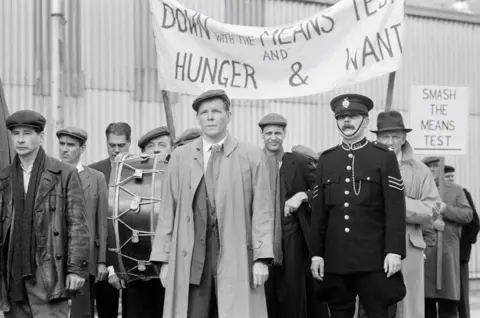
The passage of time and the changes that brings are key themes in A Scots Quair and the books are now more than 90 years old.
Last year it was revealed Sunset Song was being removed as a set text for Higher English after a consultation with "learners and practitioners" across the country.
A majority of both groups called for the novel to be dropped from the list in favour of more modern and diverse texts. The Scottish Qualifications Authority said it was only being removed from the critical reading paper and could still be taught.
For Vivien Heilbron, there is no more radical, modern, relevant text.
"I don't think you can think of anything more modern than some of the statements that Lewis Grassic Gibbon makes about mankind. I mean, human nature doesn't change a great deal," she says.
"This is a book that should not be forgotten."
